What Speech and Language Skills Should a 6-Year-Old Have?
The following skills are all expected to emerge by the end of 2nd grade (7-8 years old). Not all children will acquire all of these skills by this age. If a child is missing a few skills, we generally don’t worry too much. However, if a child is far off from many of these skills, we like to get them in for a speech/language assessment/evaluation.
This page is recommended as a general guide to give you an ideas of skills you could address within this age bracket. It is not meant to diagnose a child or provide treatment recommendations. SLK Hub is for informational and educational purposes only and does not provide medical or psychological advice.
* To view the sources for this information, please scroll to the bottom. School-age language skills are taken from the Common Core State Standards. This is a standardized curriculum that is commonly used in the United States. Not all school curriculums will follow these language skill timelines exactly.
Speech Sound Skills for 6-year-olds:
- Intelligibility: Are understood at least 90% of the time when speaking (Source)
- Uses all speech sounds correctly (keep in mind some areas limit the speech sounds that school SLPs can address until later ages)
- Should no longer be using phonological processes (speech sound error patterns)
Language Skills for 6-year-olds:
School-age language skills are taken from the Common Core State Standards. This is a standardized curriculum that is commonly used in the United States. Not all school curriculums will follow these language skill timelines exactly.
- Asks and answers questions in order to gather information, clarify something not understood, and participate in classroom activities (such as answering questions about key details of a text).
- Can retell stories, including key details, and demonstrate an understanding of their central message or lesson
- Can describe characters, settings, and major events in a story, using key details
- Can identify who is telling a story
- Can compare and contrast the adventures and experiences of characters in stories
- Can orally tell a story or talk about a past event by recounting two or more appropriately sequenced events, including some details about what happened, using temporal words to signal event order (such as “first”, and “last”), and providing some sense of closure
- Can explain major differences between a story and information
- Can identify the main topic and key details of a text
- Can describe the connection between two individuals, events, ideas, or pieces of information in a text
- Can orally provide information by naming a topic, supplying some facts about the topic, and providing some sense of closure
- Can orally state an opinion by introducing the topic, stating an opinion, supplying a reason for the opinion, and providing some sense of closure
- Can identify basic similarities and differences between two texts on the same topic
- Uses common, proper, and possessive nouns in their speech
- Correctly uses determiners (articles like “the”, “a”, and demonstratives like “that”) in their speech
- Can produce and expand complete simple and compound sentences in response to prompts
- Correctly uses singular and plural nouns with matching verbs in their speech (such as “he hops, we hop”)
- Correctly uses personal, possessive, and indefinite pronouns in their speech (such as “I, me, my, they, them, their, anyone, everything”)
- Correctly uses verbs to convey a sense of past, present, and future (such as, “yesterday I walked; Today I walk, Tomorrow I will walk”)
- Correctly uses frequently occurring adjectives in their speech
- Correctly uses frequently occurring conjunctions in their speech (such as “and, but, or, so, because”)
- Correctly uses frequently occurring prepositions in their speech (such as, “during, beyond, toward”)
- Can determine the meaning of unknown and multiple meaning words by using sentence-level context as a clue to the meaning of a word or phrase
- Can use frequently occurring affixes as a clue to the meaning of a word
- Correctly uses frequently occurring root words (such as “look”) and their inflectional forms (such as “looks, looked, looking”) in their speech
- Can sort words into categories (such as, “colors, clothing”) and can define words by category and by one or more key attributes (such as, “a duck is a bird that swims”)
- Can distinguish shades of meaning among verbs differing in manner (such as “look/peek”) and adjectives differing in intensity (such as, “large/gigantic”)
- Can identify real-life connections between words and their use (such as, “note places at home that are cozy”)
Social Communication Skills for 6-Year-Olds:
- Stays on topic and can take turns when talking with people
- Can give directions to others
- Fully understands rules and regulations
- Can take charge of simple chores
- Finds a best friend
- Learns more complex coping skills
- Explores new ideas and activities
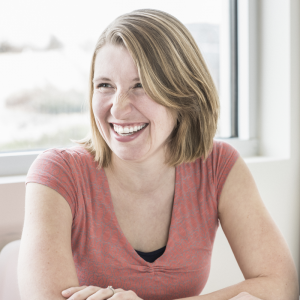
About the Author: Carrie Clark, MA CCC-SLP
Hi, I’m Carrie! I’m a speech-language pathologist from Columbia, Missouri, USA. I’ve worked with children and teenagers of all ages in schools, preschools, and even my own private practice. I love digging through the research on speech and language topics and breaking it down into step-by-step plans for my followers.
Connect with Me:
Sources:
The following sources were used to provide the ages, skills, and milestones on this page. Keep in mind that different studies have found different results. We have tried selecting more recent studies and using information provided by reputable sources such as the American Speech-Language Hearing Association and the Center for Disease Control. However, we understand that there are other studies out there that may contradict this information somewhat.
Please use these resources as a general guide and use your own professional judgement as well. Parents should seek the advice of a licensed speech-language pathologist who can sort through this information and make recommendations based on a specific child’s situation and needs.
Speech Sound Intelligibility:
Hustad, Katherine C., et al. “Speech Development Between 30 and 119 Months in Typical Children I: Intelligibility Growth Curves for Single-Word and Multiword Productions.” 2021, https://pubs.asha.org/doi/10.1044/2021_JSLHR-21-00142. Accessed 30 Oct. 2023.
Speech Sound Age of Acquisition:
Crowe, Kathryn, and Sharynne McLeod. “Children’s English Consonant Acquisition in the United States: A Review.” 2020, https://pubs.asha.org/doi/10.1044/2020_AJSLP-19-00168. Accessed 30 Oct. 2023.
ASHA’s Phonological Processes/Patterns Age of Elimination:
“Selected Phonological Processes.” American Speech-Language-Hearing Association, American Speech-Language-Hearing Association, www.asha.org/practice-portal/clinical-topics/articulation-and-phonology/selected-phonological-processes/. Accessed 30 Oct. 2023.
Developmental Stages of Social Emotional Development in Children:
Malik F, Marwaha R. Developmental Stages of Social Emotional Development in Children. [Updated 2022 Sep 18]. In: StatPearls [Internet]. Treasure Island (FL): StatPearls Publishing; 2023 Jan-. Available from: https://www.ncbi.nlm.nih.gov/books/NBK534819/
Building Your Child’s Listening, Talking, Reading, and Writing Skills (By ASHA):
Wellman Owre, DeAnne, and Martha Kennedy Brennan. “Building Your Child’s Listening, Talking, Reading and Writing Skills: Kindergarten to Second Grade.” ASHA Website, American Speech-Language Hearing Association, www.asha.org/siteassets/uploadedfiles/build-your-childs-skills-kindergarten-to-second-grade.pdf. Accessed 30 Oct. 2023.
Common Core State Standards:
“Common Core State Standards for English Language Arts .” Common Core State Standards Initiative, 2 June 2010, www.thecorestandards.org/wp-content/uploads/ELA_Standards1.pdf.

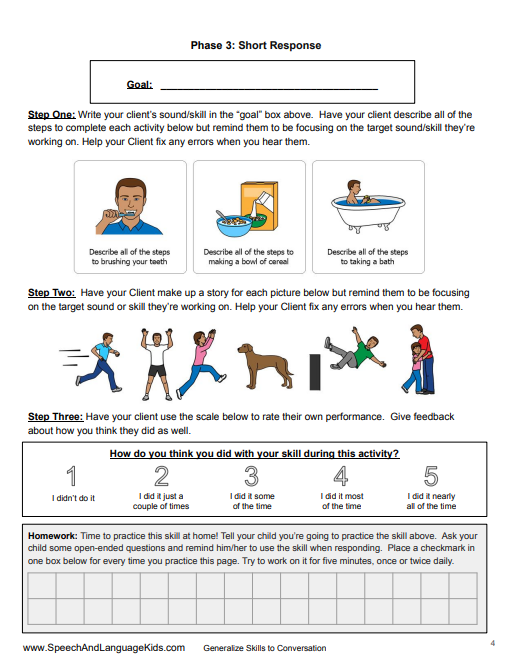
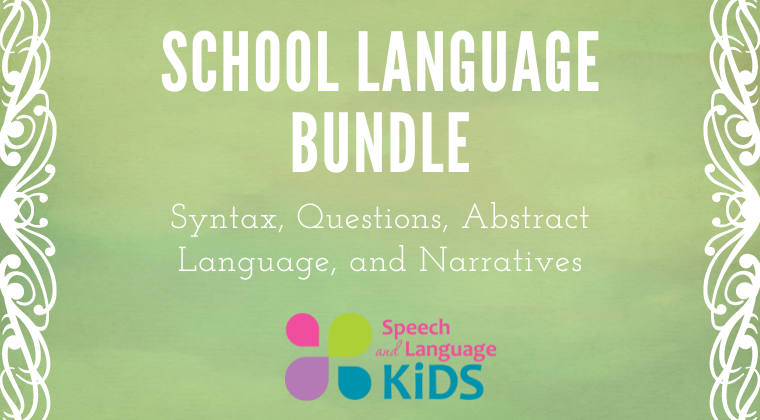
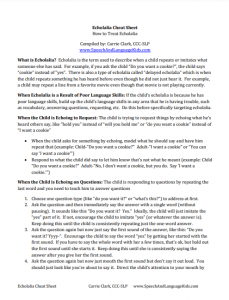
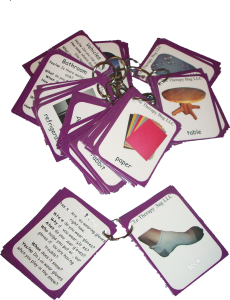
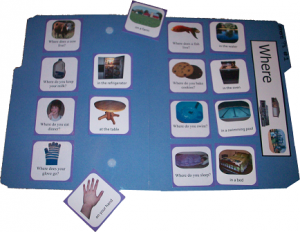





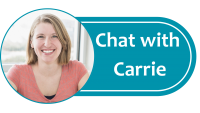

Hi I would like speech for my son
Hello! I am not currently offering speech therapy. I would search the internet for speech therapists in your area or speak with your child’s doctor or local school district.
What exercises do you recommend practicing at home for a 6 year old who is speech delayed and has touble pronouncing sounds and letters?
Check out this page for information about specific speech sounds:
Speech Sound Resource Page:
http://www.speechandlanguagekids.com/speech-sound-resource-page/
hi my grandson is 6yrs he is very bright and speaks and reads well above average but does not understand a lot of what he reads or what people are saying to him
I’m sorry to hear your grandson is having trouble! I definitely recommend having a speech-language therapist evaluate or screen him if you’re worried. The one at his school should be able to do this for free!
Hi, my 5 yr old daughter has a language of 2 yr old. She has just been diagnosed with autism.
Is there some way to help her cope up with the delay ?
Hi, Jayshree-
You can try reviewing this link or this link to assist with your daughter.
Hi
My son six and half years old and he can read, memories write but his conversation is weak not in his age.
I saw quite improve in the last 3 months.
Could you please give me advise regarding him.
Also I took him to many doctors and speach therpists all of them said، he has no problem but still his conversation weak
Same here my son is 6 … He can write and does well in his class as well… But his speech is delayed … he speaks very less 🙁
Morning, I have a 6 years old niece who minds go 100 miles a minute. She changes topic quickly and moves from places to places. She learned well enough, but I feel like we are holding her back by thinking she is not listening and just won’t stop. Her speech is almost at age level, with some issues. Should we get her tested? Sign her up for activities? Or….?
hi! my 6 yeard old daughter is hard to communicate.she know how to read and can speak f she want but when i ask a question about in school she cant answer.for example.what are you doing in school.she cant answer me but if i’ll ask a question she want to hear she answer rightly..what shes need for her